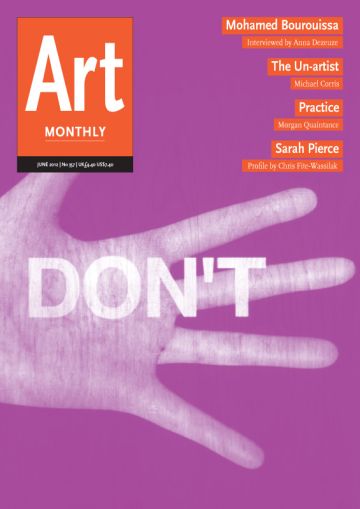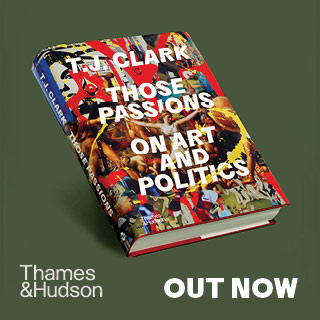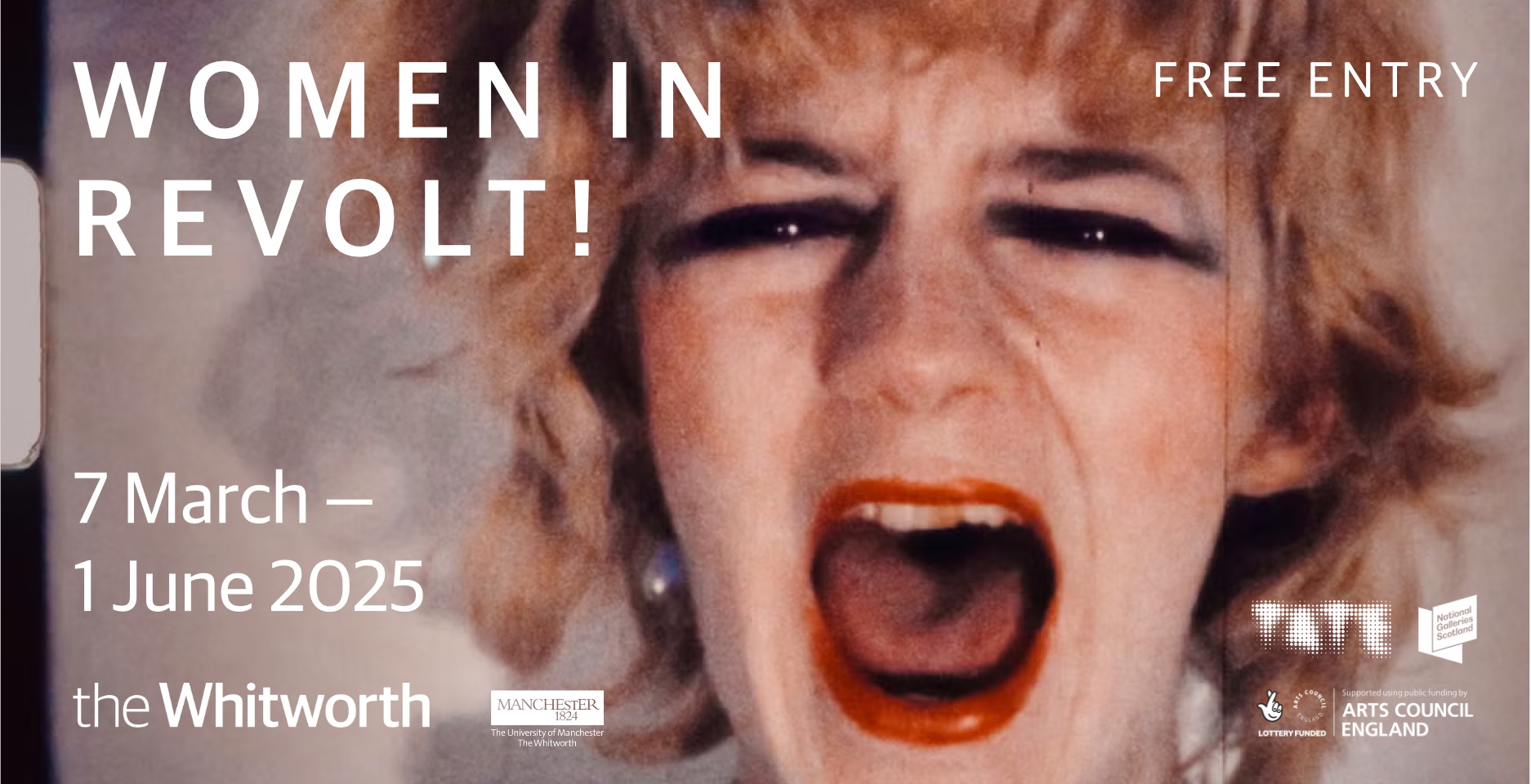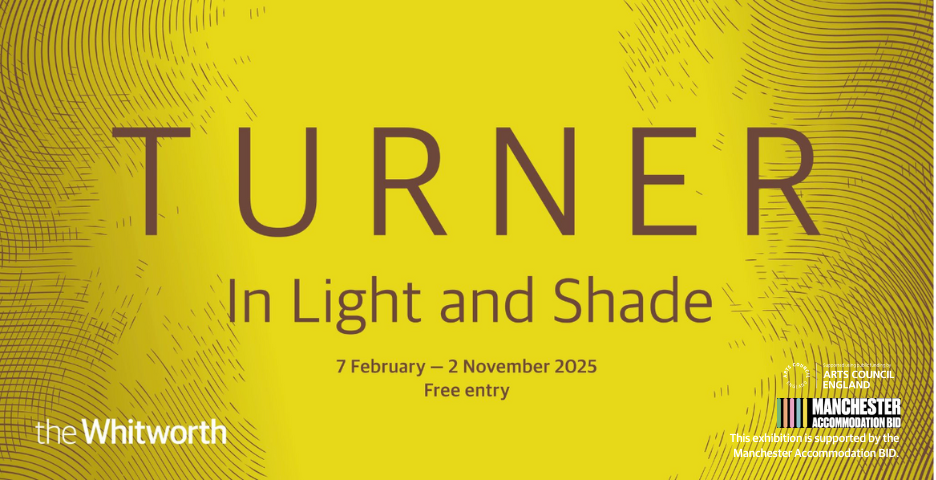Art Monthly 357
June 2012
Mohamed Bourouissa
Interviewed by Anna Dezeuze
The Un-artist
Michael Corris
Practice
Morgan Quaintance
Sarah Pierce
Profile by Chris Fite-Wassilak
Buy Now – select:
Want to read this right now?
Get instant access to the entire back catalogue via Exact Editions from only £8.99!
Contents
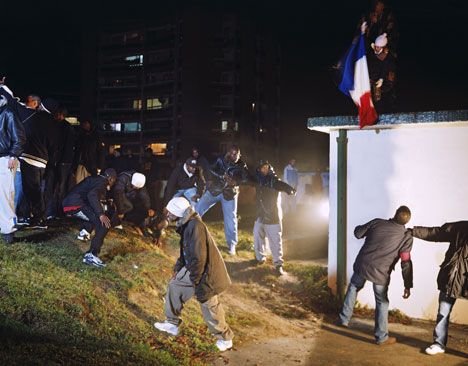
Mohamed Bourouissa La République from 'Périphéries' 2006
Interview
Protocol
Mohamed Bourouissa interviewed by Anna Dezeuze
The young Algerian-born French photographer and filmmaker Mohamed Bourouissa was one of the stars of the 2011 Venice Biennale, where he showed Boloss, a film that follows the fortunes of a group of youths in Marseille. Here he discusses making work for specific audiences, his collaboration with prisoners and why he has been taking 3D scans of jobless individuals.
'One of the most emblematic and best-known photographs from the "Périphéries" series, which I titled La République, was staged in Clichy-sous-Bois on 25 December 2005, after the riots had calmed down. I was working above all on the feeling of tension, an invisible tension. That is what I was trying to make visible rather than what happens in riots, because riots are only the visible part of this tension. By the way, I think that we will have new riots in the next three or four years if things don't improve.'
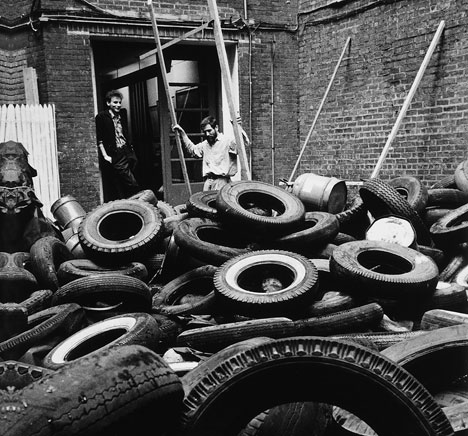
Allan Kaprow Yard 1961 performance with Lucas Samaras
Feature
The Un-artist
What do artists need to know? asks Michael Corris
With art education having been privatised and the doctorate in fine art practice becoming ever more entrenched, what is it that artists actually need to know in this deskilled art world? And what do artists such as Allan Kaprow and Ian Burn, or the ill-conceived Artist Placement Group tell us about art knowledge?
'"Heuristics", "dithering devices" (a term taken from mechanical engineering) and the "anti-textbook" are but a few of the ways in which the urgent need for unlearning and relearning as artists was articulated during this period.'
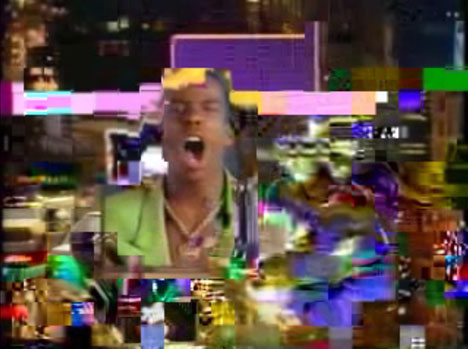
Paul B Davis B.Y.O.B.B. (Bring your own Bobby Brown) 2008
Feature
Practice
Practice is not a counterfeit term argues Morgan Quaintance
If the dominance of continental theory in contemporary art has abated, a new generation of artists – from Katie Paterson to Marcus Coates, Catherine Sullivan to Cory Arcangel – are now finding their own esoteric bodies of knowledge to mine. Is this new relationship between doing and thinking not the very definition of 'practice'?
'In contrast to the OED's implied hierarchical relationship in which theory could be seen as a rarefied activity estranged from the actual business of doing, practice in the field of art is locked in a recursive and symbiotic relationship with theory. They are almost one and the same thing.'
Comment
Editorial
Snakes and Ladders
The travails of the current Secretary of State for Culture, Olympics, Media and Sport, Jeremy Hunt, seem to be par for the course. Just what is it about this job title that has derailed so many once-promising political careers over the 20 years since it was first introduced?
'Since it became a cabinet appointment back in 1992, somewhat surprisingly under a Tory government, the post of Secretary of State for the Arts has been something of a poisoned chalice. The first Secretary of State for National Heritage was David Mellor, who left office less than a year later following a kiss-and-tell sex scandal. As scandals go it was more a Whitehall farce than a Profumo Affair, but it was a bad start.'
Letters
The Whitechapel Gallery's managing director Stephen Crampton-Hayward responds to John Douglas Miller's 'Art Workers' polemic, and Miller replies. Michael Hampton tackles Paul O'Kane's 'Things' feature, and O'Kane replies.
Artnotes
A protest group details the (non-)payment of artists; the DCMS is in the firing line; the state of artists' employment opportunities declines further; a fundraising appeal successfully acquires a commission by a public agency for a public museum; the Whitney comes under attack again by protesters; Camden's arts organisations cosy up; MAXXI in Rome goes into administration before its second birthday; all the latest news on galleries, people, prizes and more.
Submissions: Send Artnotes info to artnotes@artmonthly.co.uk
Obituaries
David Weiss 1946-2012
Breda Beban 1952-2012
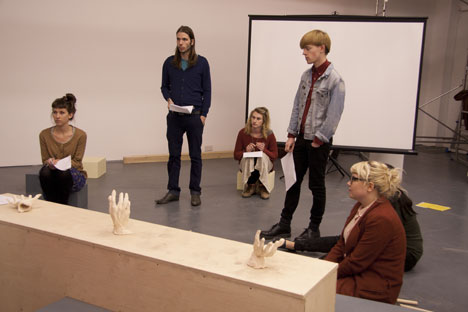
Sarah Pierce The Artist Talks 2012
Profile
Sarah Pierce
Chris Fite-Wassilak on an artist of dialogue
Sarah Pierce makes collaborative performances that rework historical scenarios, folding them into contemporary narratives to create a living archive that reveals the contested nature of history.
'The Artist Talks carries several strands common through Pierce's work: the combined layering of video, performance and installation; the restaging of historical texts; the extensive use of dialogue and interview; theatrical stage settings; students and major art figures as both subjects and performers within her work.'
Reviews
Exhibitions
The Sacred Modernist: Josef Albers as a Catholic Artist
Lewis Glucksman Gallery, Cork
Mark Harris
Stephen Prina
Maureen Paley, London
Christopher Townsend
Glasgow International Festival of Visual Art
various venues
Martin Herbert
7th Berlin Biennale for Contemporary Art: Forget Fear
various venues
Francis Frascina
11th Havana Biennial: Artistic Practices and Social Imaginaries
various venues
Klara Kemp-Welch
Subversion
Cornerhouse, Manchester
Bob Dickinson
Eric Baudelaire: The Anabasis of May and Fusako Shigenobu, Masao Adachi and 27 Years Without Images
Gasworks, London
Nicholas Warner
Stan Douglas: Midcentury Studio
Victoria Miro, London
Christopher Townsend
Benedict Drew: GLISS
Cell Projects, London
Adam Pugh
Bouvard and Pécuchet's Compendius Quest for Beauty
David Roberts Art Foundation, London
Sophie J Williamson
Superpower: Africa in Science Fiction
Arnolfini, Bristol
Omar Kholeif
Reviews
Books
Victor Burgin: Parallel Texts
Jennifer Thatcher on collected writings by an artist-educator
'As art schools become more subject to market values, Victor Burgin cites the importance of acting as a citizen rather than as an artist: someone who "makes watercolours of sunsets but stands up to the administration, to the colleague who makes radical political noises in the gallery but colludes in imposing ... disastrous government policies on the department".'
The Collected Writings of Jon Thompson
Peter Suchin on the collected writings of another artist-educator
'While many of the pieces in the Collected Writings were written as catalogue essays and are thus generally affirmative in import, it is in his observations on teaching or on what he calls "the Luc Tuymans effect" – the influence of market-led fashions upon art school practice – that Jon Thompson is most critically astute.'
Reviews
Performance
Florence Peake: MAKE
David Briers watches a performance inspired by art packing
'Three performers are singled out to be "packed", gradually accreted like caddis fly larvae with pieces of cardboard, fragments of polystyrene, styrofoam balls, adhesive tape – the detritus of an exhibition installation.'
Report
Letter from Cairo
18 Days
Maxa Zoller witnesses the art of a revolution
'How to write about the contemporary art scene in a country that is undergoing a revolution, a country in which its people have displayed art on the streets and carried it on their bodies?'
Salerooms
New York
Another Record Bonanza
Colin Gleadell reports that many – but not all – artists' prices are booming
'Once again, and in spite of The Scream, it was the contemporary sales that amassed the higher total ($893m to $526m), with 17 works selling for over $10m each and over 30 records broken.'
Listings
Exhibitions
Exhibition listings
Art Monthly's exhibition listings can also be viewed online.

